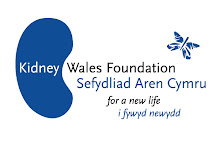
BMA - BMA writen evidence to the House of Lords Select Committee on the European Union Sub-Committee G Inquiry into the EU Commission's communication on organ donation and transplantation: policy actions at EU level, October 2007
Executive summary
The BMA has been concerned for many years about the shortage of organs available for donation and has been actively working with other organisations to find ways to address the problem. We welcome any initiatives that are likely to improve organ donation rates in the UK, and in particular, seeing what lessons we can learn from other countries within Europe. The BMA believes that the most effective way of addressing this issue is a shift to presumed consent, combined with continued organisational change and financial investment. Over the last seven years we have seen increasing support for presumed consent and we believe that it is time to move to this option, following public debate. The BMA supports increased communication and sharing of examples of good practice within Europe but is concerned that any European approach to the problem should bring clear benefits to the UK and not simply add an additional layer of bureaucracy which could, in fact, hinder progress.
Executive summary
The BMA has been concerned for many years about the shortage of organs available for donation and has been actively working with other organisations to find ways to address the problem. We welcome any initiatives that are likely to improve organ donation rates in the UK, and in particular, seeing what lessons we can learn from other countries within Europe. The BMA believes that the most effective way of addressing this issue is a shift to presumed consent, combined with continued organisational change and financial investment. Over the last seven years we have seen increasing support for presumed consent and we believe that it is time to move to this option, following public debate. The BMA supports increased communication and sharing of examples of good practice within Europe but is concerned that any European approach to the problem should bring clear benefits to the UK and not simply add an additional layer of bureaucracy which could, in fact, hinder progress.

















